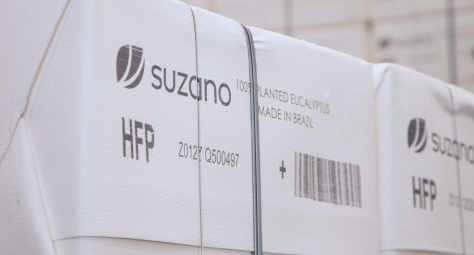sobre o que você deseja falar?


perguntas, sugestões ou problemas técnicos envolvendo a plataforma

informações sobre a empresa


Suzano's energy matrix is sustained, for the most part, by renewable sources, mainly biomass, composed of bark and rejects from the wood chipping process and black liquor (or lye), a wood residue after the separation of the pulp, which is the fuel responsible for generating the largest portion of the energy produced by the company. Additionally, still on a small scale in some industrial units, the energy use of biological sludge in the biomass boilers has already been implemented.
At the Aracruz (ES), Imperatriz (MA), Mucuri (BA), and Três Lagoas (MS) factories, there is a surplus in power generation, which makes it available to the National Interconnected System (SIN, for its initial in Portuguese) or Brazilian grid, contributing to increasing the degree of renewability of the country's energy matrix.
As part of its Commitments to Renewing Life, Suzano has assumed the long-term goal of increasing its renewable energy exports by 50% by 2030. The design of this Commitment considers that the electrical energy generated in the factories is produced from renewable sources, enabling surpluses that can supply the SIN.
In support of this Commitment, by 2022, Suzano's consumption units, such as distribution centers, nurseries, and ports, were focused on improving energy management strategies linked to the conscious and sustainable consumption of electrical energy. We highlight the migration of units to the free energy market, starting to receive renewable energy through Suzano's self-production allocation, and others that have initiated projects to install photovoltaic solar panels for their renewable energy supply.
To manage this issue, Suzano maintains recurring practices described below.
Allocation of Own Generation
Every month, all the energy consumption of the units that purchase electricity is, as a priority, covered by the energy generation of the Suzano plants that produce surplus energy and are exporters through the regulatory mechanism of the Allocation of Own Generation (AGP, in Portuguese acronym), via the internal systems of the Electrical Energy Trading Chamber (CCEE, in Portuguese acronym) in Brazil.
Sale of energy surplus
After the internal allocation of energy from the exporting plants to the importing plants, all the remaining energy is sold in both the free and regulated environment, via short, medium, or long-term Virtual Power Purchase Agreements (VPPAs), at market price, according to the best commercial opportunity for Suzano.
IREC Certification
In 2022, Suzano passed the certification process for issuing the International REC Standard (I -REC) for the Três Lagoas (MS) generating unit. The certificate, linked to renewable biomass energy generation, supports the construction of an increasingly cleaner energy matrix. Suzano already sells the I-REC, fostering a market of certificates that encourages the consumption of clean energy generation, as well as generating value for the company.
Brazilian Energy Sector
Suzano seeks to be active and contribute to the energy sector in Brazil. The company is a member of entities in the industry as the Brazilian Association of Large Energy Consumers (ABRACE, in Portuguese acronym) and the Brazilian Association of Investors in Self-Production of Energy (ABIAPE, in Portuguese acronym). As such, the company is also subject to local and federal regulations including:
Energy Efficiency
In the constant search for improvements, Suzano, through investments in efficiency, research, and innovation, seeks to increase its contribution to the availability of clean and renewable energy for the entire country but also focuses on making the best use of its resources.
Among the projects aimed at improving the plants energy efficiency, we can highlight: